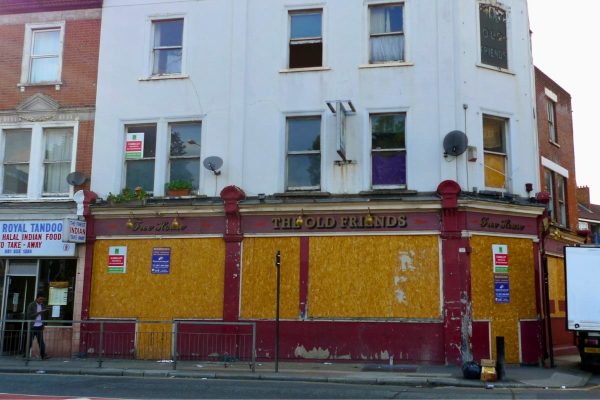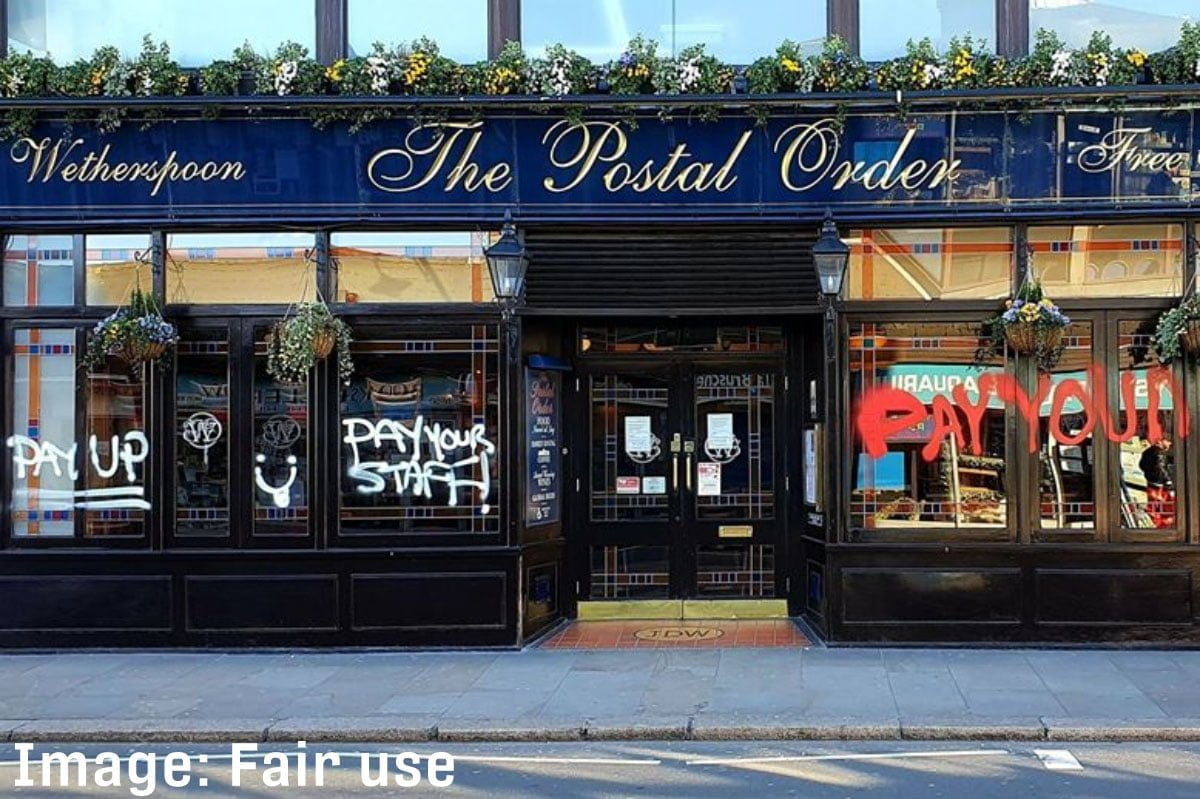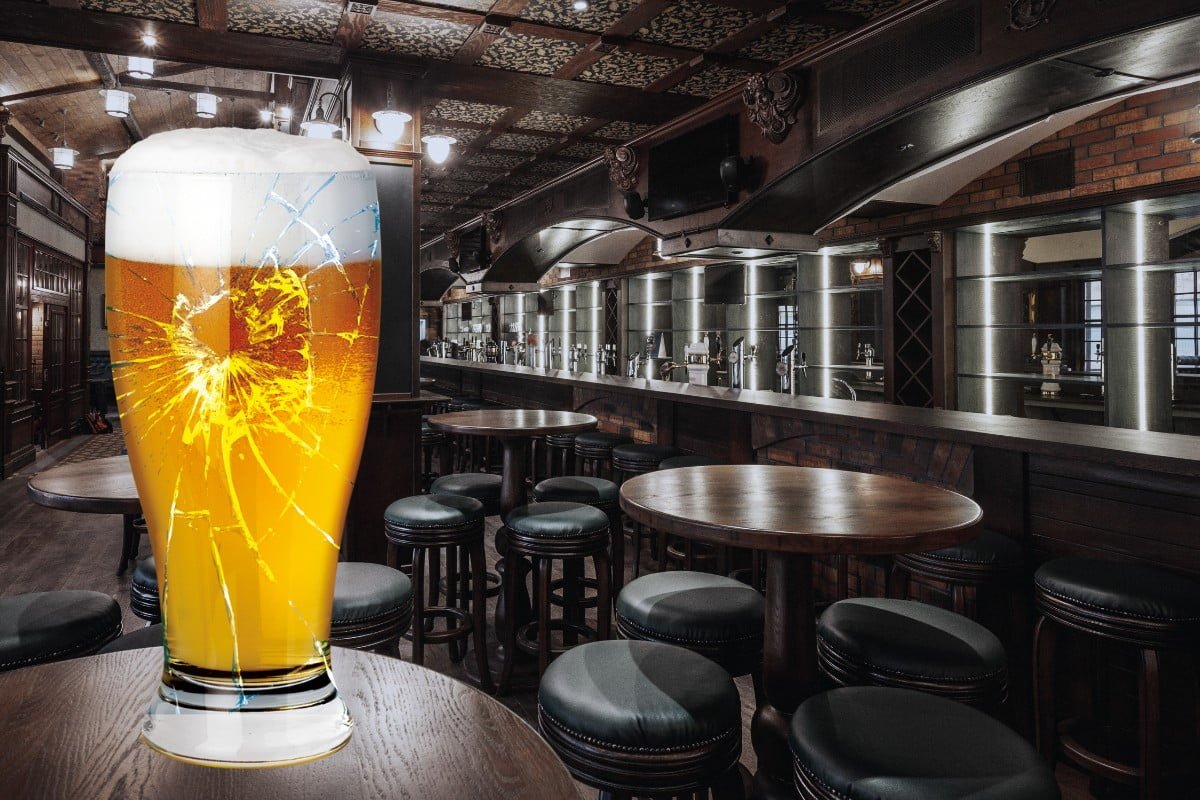In every British community lies a cherished institution; an emblem of camaraderie and collective spirit: the humble pub.
For generations, these traditional meeting places have played a crucial role in fostering social bonds, celebrating local heritage, and providing a space for all to come together.
The ravages of capitalist crisis, however, are pushing these beloved establishments to the brink.
Squeezed
Back-to-back economic crises have cast a long shadow over the British pub industry.
Years of austerity policies, soaring living costs, and stagnant wages have left ordinary working people with little disposable income, forcing them to tighten their belts and prioritise spending.
Regrettably, this often means cutting back on leisure activities. Pub visits are among the first casualties, with pub numbers now declining year-on-year.

The impact is plain to see. The number of pubs in Britain has fallen 22% since 2000, and 15% just in the decade from 2010 to 2020.
But it isn’t only the squeeze on customers’ budgets that has pushed the industry to breaking point.
During the pandemic, the pub industry lost an estimated £100m for each month of lockdown. And now many pub owners are finding it increasingly difficult to bear the burden of escalating stock costs and skyrocketing rents.
These costs are passed on to customers, or balanced by worsening working conditions for staff. Hospitality is not a heavily-unionised industry, leaving employees open to exploitation through minimum-wage, zero-hour contracts. A lack of training makes unsafe workplaces the norm.
Despite this, just 37% of hospitality businesses are turning a profit. In the pub industry, only the massive pubcos like J.D. Wetherspoons, Marston’s, and Greene King – which own half of the country’s remaining pubs – are sure to have the reserves required to weather the storm.
As local community pubs are squeezed further, many are having to call last orders for the last time.
Community hubs
The erosion of British pubs comes with societal consequences, which extend far beyond the loss of a drinking establishment.
These venues have served as vital community hubs. They have been the backdrop to countless memories – acting as a meeting place for friends, neighbours, and colleagues to gather, socialise, and build relationships.
With the price of a pub pint rising rapidly, many are choosing to drink more cheaply at home. But for those living alone, or in overcrowded housing, or in unstable situations, even this option is out of reach.
For many elderly people, the pub is their only source of regular social interaction. At Christmas, it is increasingly common for local community pubs to stay open, offering a pint and a meal to people who would otherwise be spending the day alone.
This is just one way in which pubs act to combat the epidemic of loneliness, isolation, and poor mental health that capitalism breeds.
And yet, for many, the soaring costs associated with this chance for socialising and community interaction puts it increasingly out of reach.
Workers’ control
The crisis facing the country’s watering holes is not an isolated incident, but a symptom of a wider disease – that of the capitalist system, which prioritises profits over people.

In order to secure the future of the industry, and to reclaim our communal spaces, we must fight for public ownership of public houses, to be run by workers, for workers.
The big pub chains, such as Wetherspoons, should be nationalised: taken out of the hands of profit-thirsty bosses, and placed under democratic workers’ control.
And the wealth of the super-rich should be seized, in order to provide working-class communities with the funds needed to keep local pubs going, as a cornerstone of the neighbourhood, alongside other important services.
Socialism
The aim is not socialism in one pub room, however.
Under capitalism, the entire industry is set up to exploit working-class people, including those suffering from alcohol addiction and dependence – all to fill the pockets of a few fat-cat bosses.
Only when the economy is in the hands of the working class, planned in our interests, can pubs serve the role they should, offering workers an affordable place to rest, socialise, and relax.
Only when society is run by the working class will alcohol be a means of genuine enjoyment, rather than a form of escapism from the miseries of daily life under capitalism.
The fight to save our pubs is a fight for our communities; for a society built on camaraderie, mutual support, and shared experiences.
So let us raise our glasses to this socialist vision, and get organised to fight for a society where the vibrant tapestry of community life can thrive once again.






